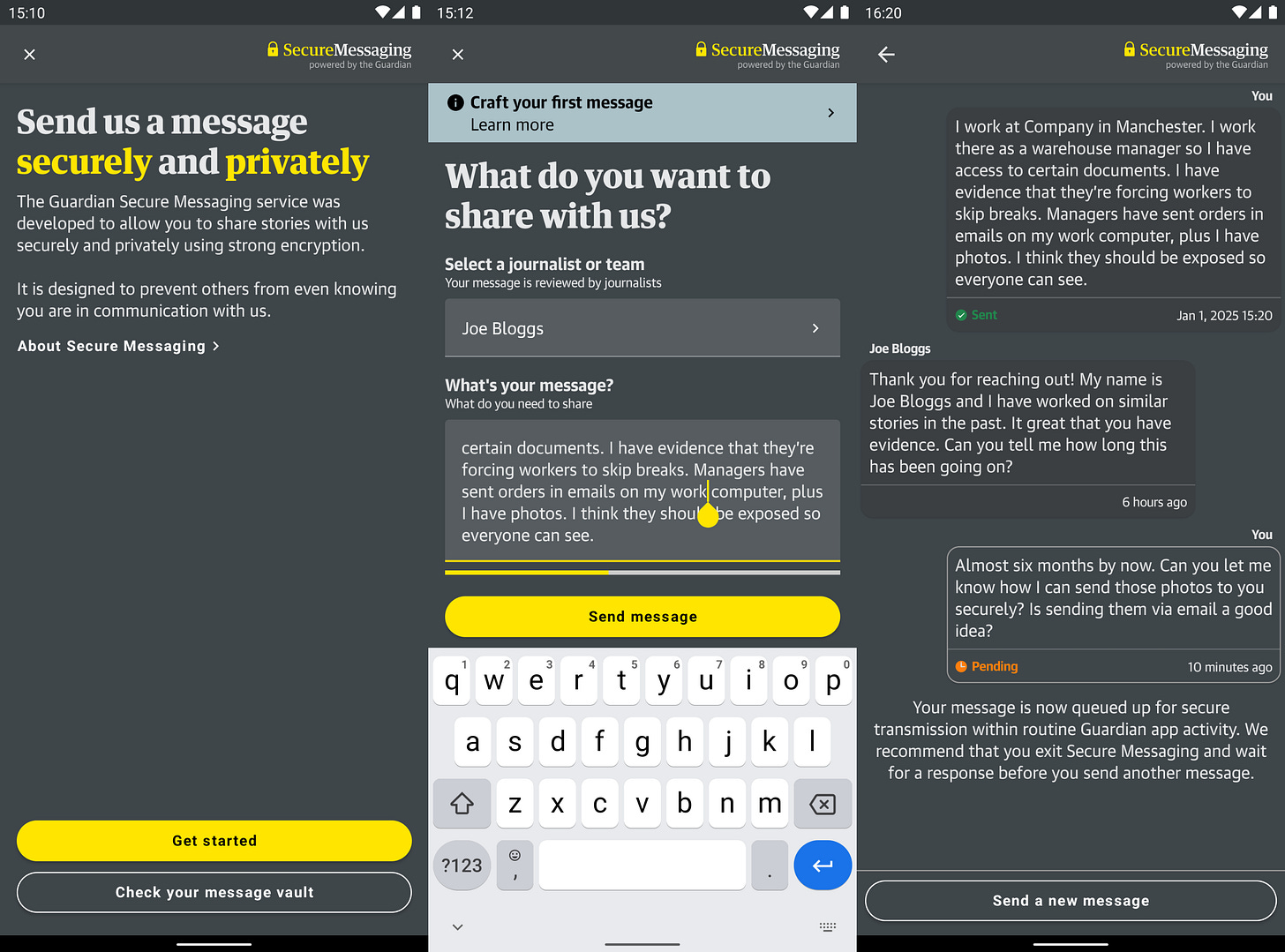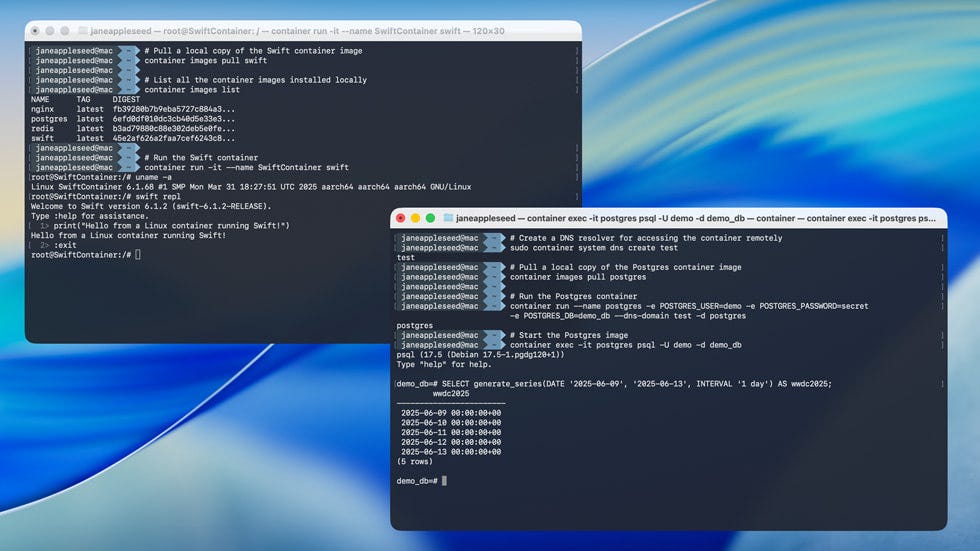All's FAIR in love and WordPress
Plus: A new "universal translator for work data," and much more.
There’s a lot to digest in this week’s edition of Forkable, including a new effort from the Linux Foundation to create a “decentralized alternative” to the existing WordPress plugin and theme ecosystem, compromized due to an ongoing spat between Automattic CEO Mark Mullenweg and WP Engine.
Elsewhere, we look at a new open source project designed to unify work-related data from the likes of Jira, Notion, Asana, Linear, Trello, and more.
Plus, the OpenInfra Foundation is now formally part of the Linux Foundation. And much, much more…
As usual, feel free to reach out to me with any questions, tips, or suggestions: forkable[at]pm.me.
Paul
Open issues
All’s FAIR in love and WordPress
The Linux Foundation this week announced the FAIR Package Manager Project, an open source effort to “…rethink how software is distributed and managed in the world of open web publishing.”
Digging a little deeper, however, reveals that FAIR (Federated And Independent Repositories) is specifically about addressing the WordPress mess that has seen Automattic CEO and WordPress co-creator Matt Mullenweg at loggerheads with rival hosting firm WP Engine since last year (read all about it here). This has included blocking WP Engine’s access to key WordPress resources, such as the plugin and theme directories.
With various legal wrangles still ongoing, the Linux Foundation is looking to create a “decentralized alternative” to the existing WordPress plugin and theme ecosystem, which sits under the auspices of the WordPress Foundation (and which Mullenweg, effectively, controls).
The new project is designed to replace existing communication with WordPress.org APIs (e.g. update checks, and event feeds), via “local or FAIR-governed alternatives” delivered via a plugin. And then there is a new decentralized package management model specifically for themes and plugins.
“The FAIR Package Manager project paves the way for the stability and growth of open source content management, giving contributors and businesses additional options governed by a neutral community,” Linux Foundation executive director Jim Zemlin said in a statement.
An early “pre-release” version of the new FAIR plugin is available now.
Read more: Fair Package Manager Project [GitHub repo]
A ‘universal translator for work data’
Plane, a startup taking on Jira with an open source project management tool for software teams, has announced plans to release a schema it created internally to unify work-related data.
“At Plane, we kept hitting the same wall — how do you migrate work data between tools without getting locked or lost?,” Plane co-founder and CEO Vamsi Kurama wrote on LinkedIn. “ETLs [extract, transform, load] aren't enough. Teams need something universal and flexible.”
OpenWorkLang (OWL) is an open source, open standards-based schema language designed to unify data from tasks, projects, documents, and more. This could prove useful for migrating data cleanly between tools such as Trello and Asana, for instance, or integrating multiple tools through a shared format.
Alternatively, OWL could help developers build apps or AI agents that understand work data without having to support multiple proprietary formats, while also allowing them to run analytics or machine learning workloads on standardized data from Jira, Notion, Slack, Google Calendar, Asana, Linear, Trello, and more.
Ultimately, this helps prevent vendor lock‑in, with Kurama noting that OWL can be thought of as something akin to a “universal translator for work data.”
“The vision? Give teams clarity, consistency, and control over their work data — without vendor lock-in or cognitive overload,” he wrote. “We believe OWL will fundamentally shift how people think about structured work data, especially for systems that need to be stable, interoperable, and built to last.”
Available under a Apache 2.0 license, OWL will be released to one and all some time in Q3, 2025. The OWL waitlist is open now.
Read more: Introducing OWL – the Open Work Language [LinkedIn post]
It’s official: OpenStack joins the Linux Foundation
As I reported back in March, OpenStack, the open source, open standards-based cloud computing platform designed for running AWS-like environments in private or hybrid clouds, has been preparing for life as part of the Linux Foundation. Well, now it’s official: the OpenInfra Foundation, which houses projects including OpenStack, is now formally part of the Linux Foundation following a members’ vote.
OpenStack began back in 2010 as a joint project between Rackspace and NASA, transitioning to its own OpenStack Foundation before rebranding as the OpenInfra Foundation in 2020 having grown beyond its initial focus.
The Linux Foundation, of course, has long expanded beyond Linux, serving more as a “foundation of foundations” and umbrella outfit for the Cloud Native Computing Foundation (e.g. Kubernetes); Open Source Security Foundation; PyTorch Foundation, and more. And it’s this coming together of various facets of open source infrastructure that OpenInfra Foundation CEO Jonathan Bryce reckons is a “watershed moment.”
“Now that the closing is behind us, I’ve been reflecting on what this moment means —not just for OpenInfra, but for the entire open source infrastructure ecosystem,” Bryce said. “And in short: I think it’s a watershed moment. When I say that, I don’t mean it in a ‘look at us’ kind of way. I mean that something fundamental has shifted. For the first time, the open source standards for operating systems (Linux), cloud infrastructure (OpenStack), and containers (Kubernetes) are all under the same collaborative umbrella. This alignment gives us the scale, shared infrastructure, and reach to build what comes next. Together.”
Read more: We’ve closed the deal — and opened a new chapter for open source [OpenInfra Foundation blog]
Patch notes
Guardian of the whistleblowers
The U.K.’s Guardian newspaper this week launched Secure Messaging, a confidential whistleblowing tool baked directly into the main Guardian mobile app.
Created in partnership with the University of Cambridge’s Department of Computer Science and Technology, Secure Messaging is designed to make it easier for anyone to to report misdeeds to the Guardian newspaper privately.
Notably, the Guardian has released the underlying system, called CoverDrop [PDF], under an Apache 2.0 open source license for other outlets and organizations to use themselves.
Essentially, CoverDrop provides what the Guardian calls “plausible deniability” by blending messages in with normal app traffic to hide the fact that messaging is taking place at all.
Read more: In a dangerous era for journalism – a powerful new tool to help protect sources [The Guardian]
Running Linux containers on macOS
Amidst all the hullabaloo of Liquid Glass and myriad updates to its iPhone and iPad software, Apple this week dropped an interesting little open source nugget at its annual developer conference.
The Cupertino company announced a new container framework designed to help developers create, download, or run Linux container images directly on their Mac. So rather than having to install third-party tools such as Docker Desktop, a developer can spin-up a Linux container with everything already set-up inside — much faster, and more secure.
As an aside, this is the second Apple-related piece of open source news in as many weeks — last week I reported that the Godot open source game engine is now getting official support from Apple.
Apple’s new Containerization Swift package is available on GitHub now under an Apache 2.0 license.
Read more: What you need to know about Apple’s new container framework [The New Stack]
Optimizing OpenTelemetry
The OpenTelemetry with Apache Arrow project is a performance-focused initiative that uses Apache Arrow (a columnar format for in-memory analytics) to improve the efficiency, speed, and interoperability of telemetry data (i.e. traces, metrics, and logs).
To support the next phase of the project, Microsoft and app security and delivery company F5 are joining forces to develop OpenTelemetry-Arrow Protocol (OTAP) libraries for optimizing the cost of telemetry inside Collectors (components that gather telemetry data). This builds on previous work to optimize network usage when Collectors interact with each other.
So in essence, this transition sees the OpenTelemetry with Apache Arrow project shifting from optimizing data transfer between Collectors (network efficiency), to optimizing data processing within Collectors (CPU efficiency).
Read more: Microsoft and F5 join forces on OpenTelemetry with Apache Arrow in Rust [Microsoft blog]
What’s up, docs?
Google has published new resources designed to help open source project maintainers plan and execute documentation projects. Docs Advisor serves guidance on choosing the right documentation approaches, while documentation project archetypes offer field guides for various documentation projects, helping maintainers identify suitable collaborators and strategies.
It’s all about providing actionable strategies for improving documentation quality and effectiveness — vital for boosting usability, attracting contributors, and reducing support requests.
Read more: Introducing new open source documentation resources [Google open source blog]
Mistral’s Magistral model
French AI startup Mistral this week announced its first reasoning model, dubbed Magistral, available in two versions — this includes Magistral Small, a 24B parameter model available under an Apache 2.0. open source license.
Read more: Announcing Magistral [Mistral blog]
RedNote revs open source AI engine
Social networking and e-commerce platform RedNote is the latest Chinese technology company to throw its hat into the open source AI ring.
As per a report in the South China Morning Post, RedNote joins the likes of DeepSeek, Xiaomi, Tencent, and Alibaba in releasing an open source large language model (LLM). This sits in stark contract with their U.S. counterparts, which have largely adopted more closed approaches.
Read more: RedNote joins AI race with its own open-source model that it says bests Alibaba, DeepSeek [South China Morning Post]
And finally…
A one-handed QWERTY keyboard
There have been countless attempts at reinventing the traditional rectangular QWERTY keyboard, spanning myriad layouts and form factors. The motivations behind this are manifold, such as improving typing speed, ergonomics, accessibility, or simply to support new kinds of devices that come along.
It’s against that backdrop that Chinese YouTubers and digital media brand HTX Studio created the one-handed keyboard. While this isn’t an entirely novel concept, many of the existing devices are focused on gamers, are prohibitively expensive, or aren’t based on the QWERTY layout. Thus, HTX Studio built one from the ground up to be as accessible as possible, packing 61 keys and an integrated mouse into a fan-shaped arc, and open sourcing the entire design and firmware for the community to build on and modify.
HTX Studio set to work after receiving an email from a father whose daughter had lost the use of her right hand following a road accident. You can listen to the full story in the video above.
Read more: Open source one-handed keyboard blends QWERTY and mouse for true accessibility [Yanko Design]




